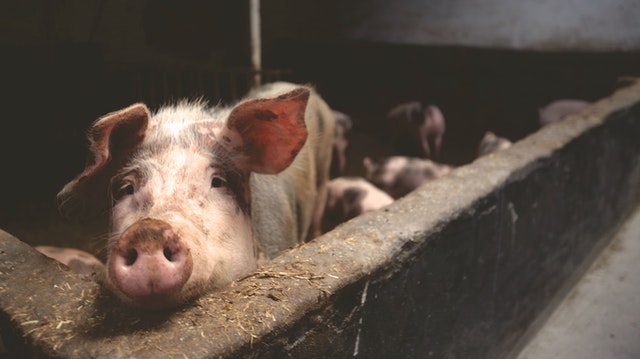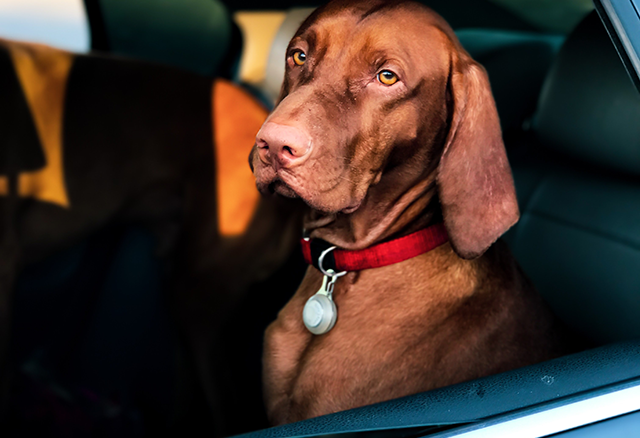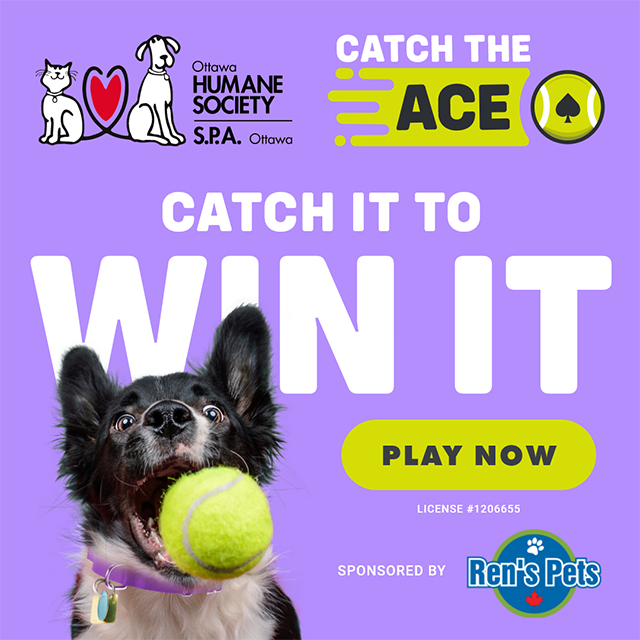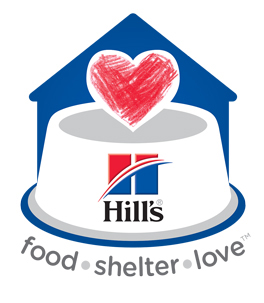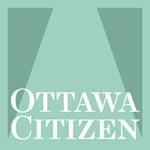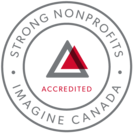|
Advocating for animals during COVID-19... read more |
|||
| If you do not see the full page with images, please click here. | |||
|
A Hard to Stomach Report |
|||
|
A recent report ranked 150 global food companies from tiers 1 to 6 based on the businesses' consideration for farm animal welfare. Tier 1 companies demonstrate leadership on farm animal welfare while tier 6 companies show little or no evidence of acknowledging farm animal welfare as a relevant business issue. In Canada, the top ranking company only reached tier 3 with other big names in Canadian food business ranking at a dismal tier 5. Farm animal well-being can often be an invisible issue. In a grocery store, the only indication of animal suffering is the end product wrapped in plastic and served on a Styrofoam tray. The sterility of a grocery store's presentation not only hides a dark truth of deplorable living conditions, inhumane treatment and ghastly slaughter, but also a malignant apathy towards improving these conditions. As a consumer, the issue of farm animal welfare can seem huge and amorphous — so unknowable that it can be paralyzing to imagine how change can be accomplished. But there are small ways to make a difference. Write to your MPP to express the need for more oversight for animal well-being in the food supply chain. Contact the owners of your go-to grocery store and ask if they can tell you about the conditions under which the animals they sell were raised. Support local, buy more frequently from farmer's markets and consider farm to table delivery options. |
|||
|
Buckle Up |
|||
|
A car crash. It's a nightmare scenario that stirs worries for the well-being and safety of friends and family. Pet owners share this worry towards their animal companions, and as a result, many companies have sprung up to address this fear with harnesses and other products. Despite bold marketing statements, many of these devices may not be as safe as they claim. A study conducted by the Center for Pet Safety examined 17 dog safety harnesses and crash-tested four harnesses from leading brands with specific safety claims. All of the harnesses failed the crash-test. The harnesses had a high likelihood of causing the pet to choke, suffer bodily harm or endanger other occupants by becoming a flying projectile. In North America, pet product businesses are widely unregulated with no specific rules in place for pet-safety restraint products. The lack of oversight opens the door for companies to make misleading claims about the safety of their products, which can have serious ramifications for consumers. A few things can be done to keep animals safe from car crashes, including leaving pets at home whenever possible or, if they must travel, securing them in a crate in the back seat. While harnesses and restraints can provide some protection, the products' marketing claims can easily exaggerate their benefits and hide their fatal shortcomings. For your safety and your pet's safety, consumer beware. |
|||
|
OHS First in Country to Receive Prestigious Humane Canada Accreditation |
|||
|
|
|||
This April, the Ottawa Humane Society became the first humane society in the country to be accredited by Humane Canada. Accreditation is recognized as an assurance that the accredited organization is a leader, and is accountable, community-oriented, effective, humane, progressive and transparent. The accreditation decision follows a two-day virtual site visit by industry experts and their review of hundreds of documents covering all aspects of sheltering and animal management. Experts reviewed the OHS facility, its sanitation, intake, medical and behavioural health, foster and adoption programs, as well as outreach, education and advocacy programs. Reviewers specifically commended the OHS for its evidence-based medical protocols, thorough intervention and enrichment programming, and extensive outreach programming that reflects and supports the diversity of the community it serves. In 2016, the OHS also achieved Imagine Canada accreditation — a distinction that belongs to only two humane societies in the country. Imagine Canada examines board governance, financial accountability and transparency, fundraising and staff and volunteer management. Between the two accreditation systems, all aspects of the OHS are now fully examined and accredited by external evaluators. The success of both accreditation initiatives reflects not only the efforts of professional staff, but also significant contributions by committed volunteers, a progressive board of directors and supportive community members like you. Accreditation shows the OHS's and community's commitment to doing the best possible job for the animals. |
|||
|
Buddy & Belle: Dennis | |||
|
For a cat, life on the streets is not easy. Just ask Dennis, a loving, one-year-old cat who was found hiding in garbage bins on a frigid January day. He arrived at the OHS with nowhere else to go. Dennis found life in the shelter to be very scary. He hid at the back of his kennel, huddled into a ball and watched every move with his big eyes. Dennis also had a big medical secret that only an X-ray was able to reveal... |
|||
| Thank you to our sponsors: | |||
|
|
|||
| Ottawa Humane Society 245 West Hunt Club Rd, Ottawa, ON K2E 1A6 donations@ottawahumane.ca | www.ottawahumane.ca |
|||
|
|
|||
|
The Standards Program Trustmark is a mark of Imagine Canada used under licence by the Ottawa Humane Society. The Humane Canada Accreditation Program mark is a licensed mark of Humane Canada used under license by the Ottawa Humane Society. |
|||
| Privacy Statement Manage your Email Preferences |
